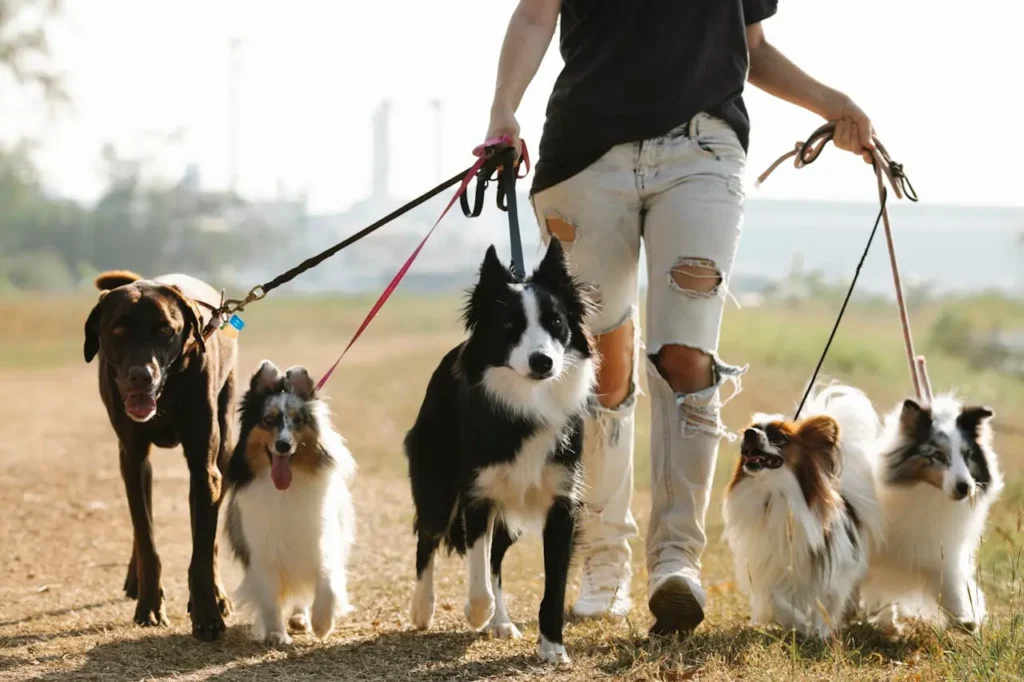Table of Contents
ToggleIntroduction: Earning Passive Income Without Owning a Rental Property
When most people think about earning rental income, they imagine real estate investments and vacation homes. But the reality is, not everyone owns a second property. In fact, according to Pew Research Center, only about 6.7% of U.S. tax filers reported owning rental real estate in 2018. For the rest of us, tapping into the rental economy might seem out of reach. Fortunately, there are plenty of items and spaces you already own that can become income-producing assets. From your spare room to your garden tools, the possibilities are wider than you might think. Here are 15 creative and profitable things you can rent out in 2025 to generate passive income—no landlord license required.
15 Things You Can Rent Out for Extra Cash
1. Spare Bedroom or Guest Room
If you have a spare bedroom, even if it’s modest in size, you’re sitting on one of the easiest opportunities for passive income. With platforms like Airbnb, Furnished Finder, and VRBO, it’s easier than ever to list your room for short-term or long-term stays. Hosts in urban and tourist-heavy areas can earn anywhere from $800 to $2,500 per month, depending on amenities, seasonality, and location. However, before diving in, be sure to check your local zoning regulations and Homeowners Association (HOA) rules.
In some cities, short-term rentals are restricted or require a license. Creating a comfortable guest experience is key—include fresh linens, Wi-Fi, and a workspace if possible. Platforms like Airbnb also offer host guarantees, but supplemental homeowners or renters insurance may still be necessary. To appeal to remote workers and digital nomads, highlight features like high-speed internet and quiet surroundings in your listing.
2. Swimming Pool

Image credit: Los Muertos Crew (Pexels)
Having a swimming pool is a luxury that can be turned into a profitable side hustle through Swimply, a platform designed specifically for renting out residential pools. Swimply users can earn between $1,000 and $5,000 per month by listing their pool for hourly use. Some superhosts report earnings upward of $25,000 over the summer season alone. Renters include families looking for private swim time, instructors offering lessons, or even production companies shooting scenes.
Swimply provides up to $2 million in liability coverage and $10,000 in property protection per incident, but it’s still essential to review your homeowners insurance. To boost your listing, include clean restrooms, safety equipment like life rings, and amenities like lounge chairs or grills.
3. Your Car or Van
Your vehicle, often a depreciating asset, can be turned into a money-making machine through car-sharing platforms like Turo, or Getaround. Turo hosts report making up to $10,000 annually, especially when listing newer or luxury models. You can rent by the day, week, or month to tourists, business travelers, or delivery drivers. To get started, your car typically must be less than 12 years old, in good condition, and have a clean title. Turo provides up to $750,000 in liability insurance and damage protection, but you should still notify your insurer.
4. Driveway or Parking Spot
In dense cities or near event venues, parking is a hot commodity. If you live near a stadium, airport, university, or business district, your driveway or designated parking spot could fetch a premium. Services like SpotHero, JustPark, Neighbor, and Vanly allow you to list your parking space for daily or monthly rentals. Vanly even caters to van dwellers or RV travelers who need overnight accommodations. Depending on location, you could make anywhere from $50 to $300 per month—or more during event-heavy seasons.
Make sure your listing includes details like security features (gated access, cameras) and proximity to local landmarks. If you offer covered parking or electric vehicle (EV) charging stations, mention those for higher rental appeal.
5. Backyard Spaces
If you have a backyard—no matter how big or small—it could serve as an income stream. Homeowners across the U.S. are monetizing their green spaces by listing them for events, parties, and photo shoots on platforms like Peerspace, Giggster, and YardYum. Hourly rates vary, but an average backyard can command $40 to $150 per hour, especially in major metro areas. Events like yoga classes, intimate weddings, or farm-to-table dinners are increasingly popular.
If crowds aren’t your thing, consider Sniffspot, which allows pet owners to rent your backyard as a secure dog play area. Listings with fenced yards, shaded areas, and water access command premium rates. Adding features like outdoor seating, fire pits, or lighting can boost your earnings and make your listing stand out.
6. Storage Space (Garage, Shed, Basement)
Unused storage areas such as basements, garages, attics, and sheds can be monetized through peer-to-peer storage platforms like Neighbor and Stache. These platforms match people in need of storage with homeowners who have space to spare. Renters may use your space to store furniture, business inventory, bikes, or seasonal gear. Monthly income can range from $50 to $600, depending on the space and location. Some users even convert old barns or detached garages into temperature-controlled units to boost rates. Neighbor offers $1 million in liability protection and optional damage protection for renters. Ensure the space is dry, secure, and accessible during the agreed-upon times, and clearly outline restrictions like hazardous materials or perishable goods.
7. Bicycles, E-Bikes, and Scooters
With the rise of eco-friendly commuting and urban tourism, bike rentals are in demand. Platforms like ListNRide and FriendWithA allow you to rent out standard bicycles, e-bikes, and even electric scooters. A well-maintained bike can earn $20 to $100 per week, depending on type and location. Cities with lots of tourists or college campuses offer especially high demand. Enhance your listing with extras like helmets, locks, or even route maps for local trails and attractions.
8. Camera Equipment and Drones

Image credit: Jakob Owens (Unsplash)
If you’re a photography hobbyist or filmmaker with extra gear, consider renting your DSLR, GoPro, tripod, or drone. Sites like ShareGrid, KitSplit, and FriendWithA cater to both professionals and casual users. Weekly earnings can range from $50 to $300 per item, and rare lenses or high-end drones command top dollar. These platforms typically offer insurance for both lender and renter, which is critical given the fragility and value of camera gear. Include sample footage or photos taken with the equipment to enhance your listing. Also, be sure to store items in protective cases and track serial numbers.
9. Camping and Outdoor Gear
Camping gear—like tents, sleeping bags, portable stoves, and even kayaks—can be expensive to buy and wasteful to sit unused. Platforms like FriendWithA let you rent out your gear to outdoor enthusiasts. Rental prices range from $10 to $100 per day depending on the item and quality. High-end brands like YETI, Coleman, or The North Face tend to attract more renters. If you have a full setup, consider bundling items into a weekend camping kit for higher earnings. Providing detailed instructions, gear checklists, and maintenance guidelines can improve your user ratings and repeat business.
10. Musical Instruments
Musical instruments like guitars, violins, keyboards, and amps are expensive to buy but often needed short-term by students, performers, or hobbyists. Platforms like Fat Llama allow you to rent instruments with minimal hassle. Expect to earn between $25 and $150 per week depending on the instrument’s condition, brand, and rarity. To ensure trust, include a short performance video showcasing the instrument’s sound quality. Regular maintenance and tuning are key to preserving value and reputation. You can also offer packages like a guitar with amp and cables for beginners.
11. Designer Clothing and Accessories
Have a closet full of formalwear or designer items collecting dust? Monetize your wardrobe by listing high-end dresses, shoes, and handbags on sites like Tulerie and By Rotation. These platforms cater to fashion-savvy renters who want luxury for less. Items must be in excellent condition and may require professional cleaning before and after each use. Lenders can earn up to $200 a month or more for in-demand pieces. Tulerie charges a 24% lending fee but covers damage and late returns. To boost rentals, include clear photos, measurements, and brand tags in your listings. Seasonal demand peaks around holidays, weddings, and formal events.
12. Wedding & Party Decor
After your wedding or big event, you’re often left with decor items like floral arches, table runners, centerpieces, and signage. Instead of selling them for pennies, rent them out through Facebook Marketplace, local event groups, or wedding-specific sites like Rent My Wedding. Many brides and event planners look for affordable, stylish decor for one-time use. Rentals can fetch $20 to $200 per event depending on the size and complexity of your inventory. Store items carefully in labeled bins and take professional-quality photos for your listings. Offering delivery or setup services can further increase your earnings.
13. Tools and Equipment
From power washers to drills, ladders to lawn mowers—homeowners and DIYers constantly need tools for one-time projects. Rather than letting your equipment gather dust, list it on sites like Fat Llama or FriendWithA. Rental rates vary from $10 to $100 per day depending on the item’s utility and brand. For high-ticket items like carpet cleaners or pressure washers, bundle with usage instructions or tutorials to add value. You can also create “project kits” like a paint prep set or home repair bundle. Fat Llama offers optional damage protection and identity verification for safer transactions.
14. Baby Gear
Parents on the go often look for rental options rather than hauling bulky baby items across the country. Platforms like BabyQuip allow you to rent cribs, strollers, car seats, high chairs, and more to traveling families. BabyQuip providers in busy metro areas often earn $500 to $1,000 a month. All gear must meet safety standards, be thoroughly cleaned, and be inspected for recalls. BabyQuip also provides insurance and cleaning guidelines. Including a delivery service or hotel setup option can attract more customers.
15. Your Personal Brand or Social Media Account

Image credit: Los Muertos Crew (Pexels)
If you’ve built a sizable following on TikTok, Instagram, or YouTube, your audience is a valuable asset. Brands pay influencers for shoutouts, affiliate marketing, or content collaborations. You can register with platforms like AspireIQ, or Upfluence to connect with companies seeking micro-influencers. Rates vary widely, from $50 per post for smaller accounts to thousands for those with high engagement. To maximize success, maintain consistent posting, authentic content, and a niche audience. You can also earn passive income through affiliate links, product reviews, or exclusive content via Patreon or Substack.
Final Thoughts: Passive Income Is Closer Than You Think
Creating passive income doesn’t always require a large investment, a financial advisor, or a second home. In 2025, the peer-to-peer rental economy is booming, offering unprecedented access to income-generating opportunities for everyday Americans. Whether it’s an unused driveway, a spare bike, or the swimming pool in your backyard, there are countless ways to turn idle assets into steady revenue streams. What’s more, these side hustles can be started with minimal upfront cost and without quitting your day job.
Platforms like Airbnb, Turo, Neighbor, and FriendWithA have revolutionized how people earn extra money by enabling secure, on-demand access to customers seeking exactly what you already own. These services offer built-in insurance, marketing tools, customer vetting, and automated payment systems—making passive income not only possible but practical for the average household. With the gig economy showing no signs of slowing down, consumers are increasingly looking to rent rather than own, creating a ripe opportunity for savvy side hustlers.
Of course, even passive income requires a degree of active setup. You’ll need to consider tax implications, platform fees, and local laws that may affect short-term rentals. Insurance updates, item maintenance, and renter communication are all essential for protecting your investment and ensuring a positive experience. The key to long-term success is consistency and a customer-first mindset.
Still, the potential benefits are undeniable. Renting out things you already own can help you build a safety net, pay off debt faster, or grow your savings. It can even become a gateway to full-fledged entrepreneurship. By exploring these unconventional yet increasingly mainstream avenues, you can create diversified income streams that align with your lifestyle and financial goals. In short, passive income is no longer a dream reserved for the wealthy—it’s a reality that’s now just a click away.
Frequently Asked Questions (FAQ)
What are some unexpected things you can rent out to make money in 2025?
In 2025, you can rent out a wide range of everyday items and spaces you might not think of as income generators. Beyond spare bedrooms and cars, people are monetizing their swimming pools, backyards, storage sheds, bicycles, camera gear, musical instruments, designer clothing, baby equipment, and even their personal social media influence. The rise of peer-to-peer rental platforms like Swimply, FriendWithA, BabyQuip, and Fat Llama has made it easier than ever to earn money from underused assets in a safe, secure, and scalable way.
How much passive income can you earn by renting out your stuff?
Passive income potential depends on what you’re renting and where you’re located. For example, renting out a spare room on Airbnb in a popular city can bring in $1,000–$2,500 per month, while a residential pool on Swimply might generate up to $5,000 monthly in summer. A car listed on Turo can earn $500–$1,000 monthly, while storage space in your garage may bring in $100–$400. Even smaller items like bikes, tools, or baby gear can earn $20–$100 weekly. With the right combination of effort, marketing, and maintenance, these rentals can build meaningful supplemental income streams.
Is it safe to rent out personal items or spaces to strangers?
Yes, renting out personal items or property is generally safe in 2025, thanks to specialized rental platforms that offer built-in protections. Most peer-to-peer services provide liability insurance, damage coverage, and identity verification to minimize risk for lenders. For instance, Turo includes up to $750,000 in liability insurance, Swimply offers $2 million in coverage, and BabyQuip adheres to strict safety and cleaning guidelines. However, it’s still smart to review your personal insurance policies, document items thoroughly, and follow each platform’s safety protocols.
Do I need special insurance to rent out my car, home, or belongings?
In most cases, the rental platform you use will provide a base level of insurance or liability protection. However, you may still need to notify your existing insurer or purchase supplemental coverage. For example, Turo provides liability coverage for vehicle rentals, but personal auto insurers may require riders or disclaim certain risks. Home-sharing platforms like Airbnb offer host protection, but your homeowner’s policy may exclude short-term rentals unless specifically endorsed. Always review the fine print and consult your insurer to avoid coverage gaps or claim denials.
Are there taxes involved when renting out items for income?
Yes, any income earned from renting out personal property or spaces is generally considered taxable by the Internal Revenue Service (IRS). Platforms like Airbnb, Turo, and FriendWithA typically issue 1099 forms if you exceed certain income thresholds, and you’re expected to report this income on your tax return. That said, you can often deduct related expenses—such as repairs, insurance, platform fees, and depreciation—helping reduce your overall tax liability. Keeping detailed records and consulting a tax professional will help you stay compliant while maximizing deductions.
Which platforms are best for renting out different types of items in 2025?
The best platform depends on what you’re renting. Airbnb and VRBO are top choices for spare rooms or guesthouses, while Swimply is ideal for renting out residential pools. Turo and Getaround are popular for cars, Neighbor and Stache for storage space, and BabyQuip for baby gear. FriendWithA and Fat Llama are versatile platforms used for everything from tools and camping equipment to bikes and camera gear. If you have a social media following, influencer platforms like AspireIQ and Upfluence connect you with brands for sponsored content opportunities.
Can I make money by renting out my backyard or parking spot?
Absolutely. In high-demand urban or event areas, your backyard or parking space can become a valuable asset. Backyards can be rented for events, yoga classes, or pet play areas through Peerspace, Sniffspot, or Giggster, earning $40 to $150 per hour. Parking spots near stadiums, airports, or business hubs can bring in $50 to $300 per month using apps like SpotHero, JustPark, and Vanly. Enhancements like EV charging stations, security features, or shaded areas can significantly increase your earning potential.
What kind of maintenance is required when renting out personal items?
Regular maintenance is crucial to preserve the value and usability of rental items. For example, musical instruments must be tuned and cleaned, tools need to be checked for safety, and baby gear must meet current health and safety standards. Similarly, your car should be serviced regularly, your pool kept clean and safe, and rental spaces should be tidy and welcoming. High-quality listings, quick responses to inquiries, and well-maintained items all help increase rental frequency and positive reviews.
Do I need a business license to rent out things I own?
In most cases, you don’t need a business license for occasional rentals, but local regulations can vary. Renting out a room or property may require a short-term rental permit or registration depending on your city or county. Commercial activity, such as frequent car rentals or running a full event space, might trigger zoning, insurance, or licensing requirements. It’s best to check with your local municipality and the terms of service for the platform you’re using to ensure full legal compliance.
How can I increase the chances of getting rentals?
To maximize your rental income, make your listings attractive, transparent, and detailed. Use high-quality photos, clear descriptions, and accurate availability. Highlight unique features—like a fenced backyard, luxury camera lens, or rooftop parking spot—and respond promptly to inquiries. Offering delivery, setup, or support (such as user instructions or maintenance tips) adds extra value. Encouraging positive reviews and maintaining excellent ratings will also boost visibility on most rental platforms, helping you stand out in a competitive market.
Featured image credit: Pixabay (Pexels)


